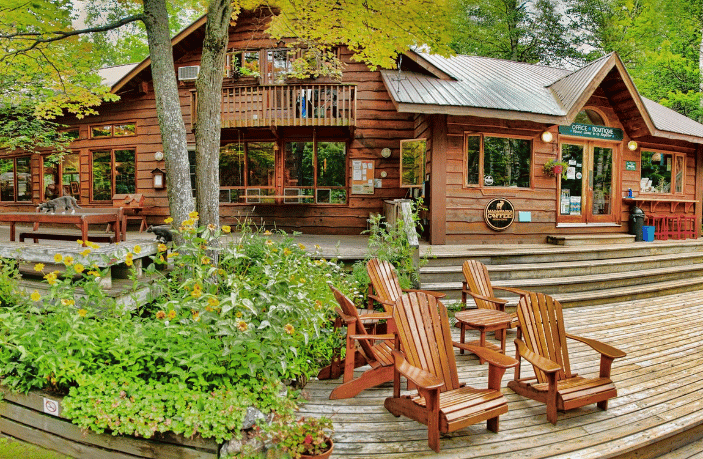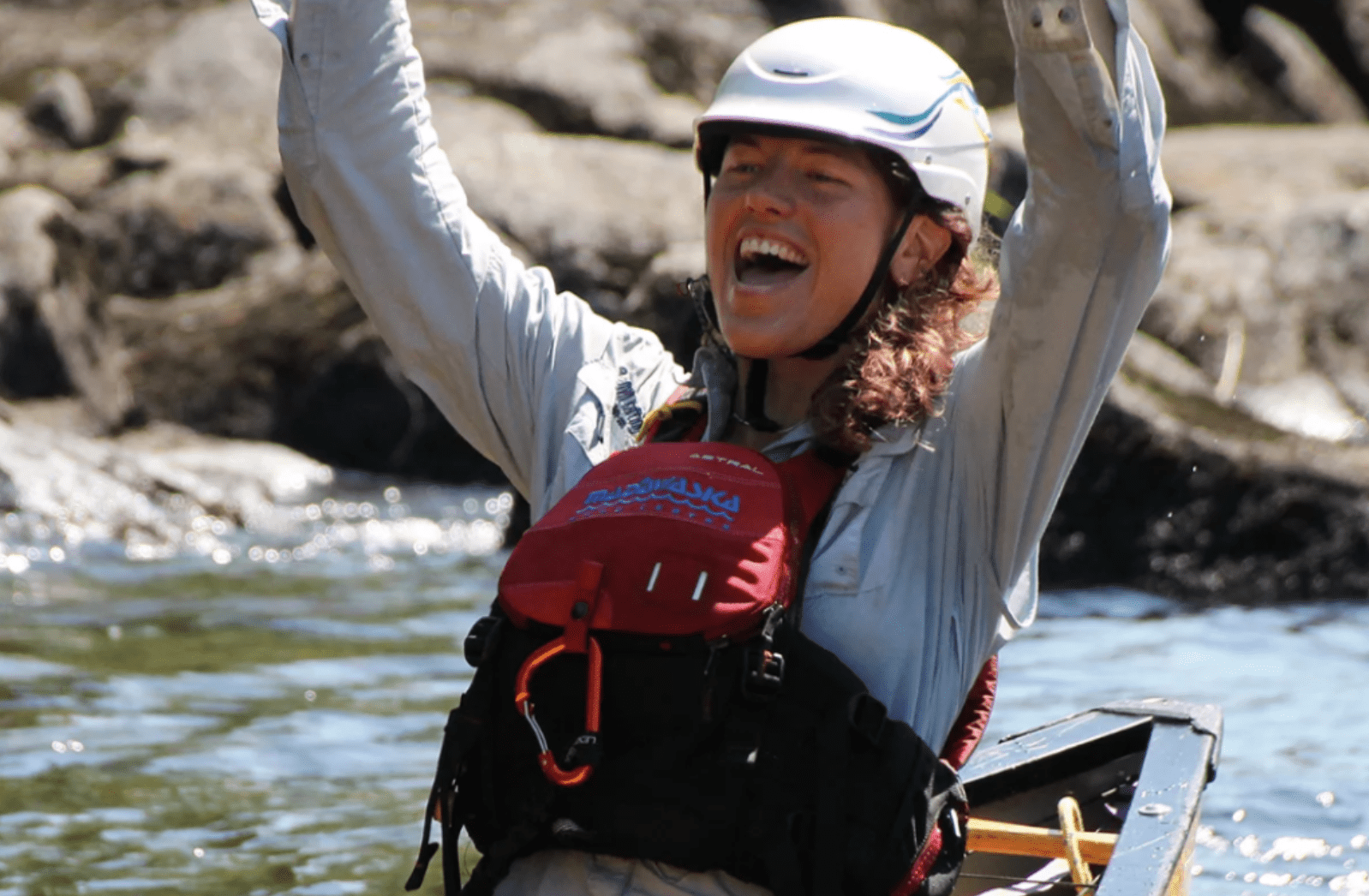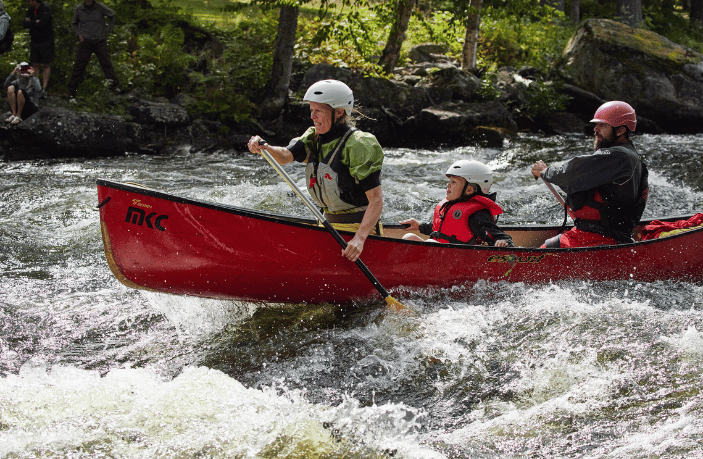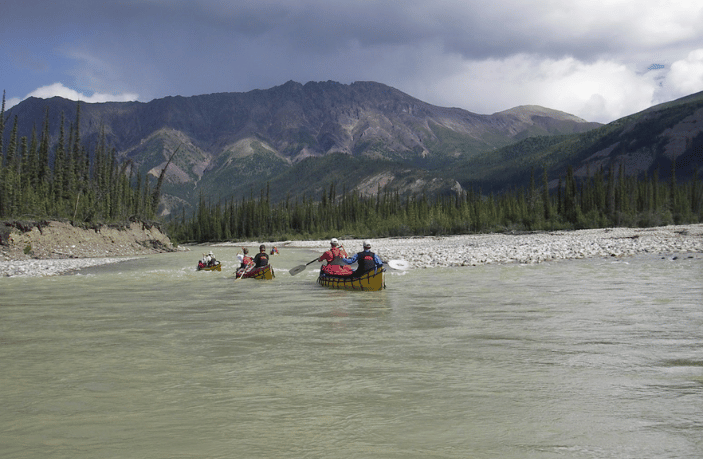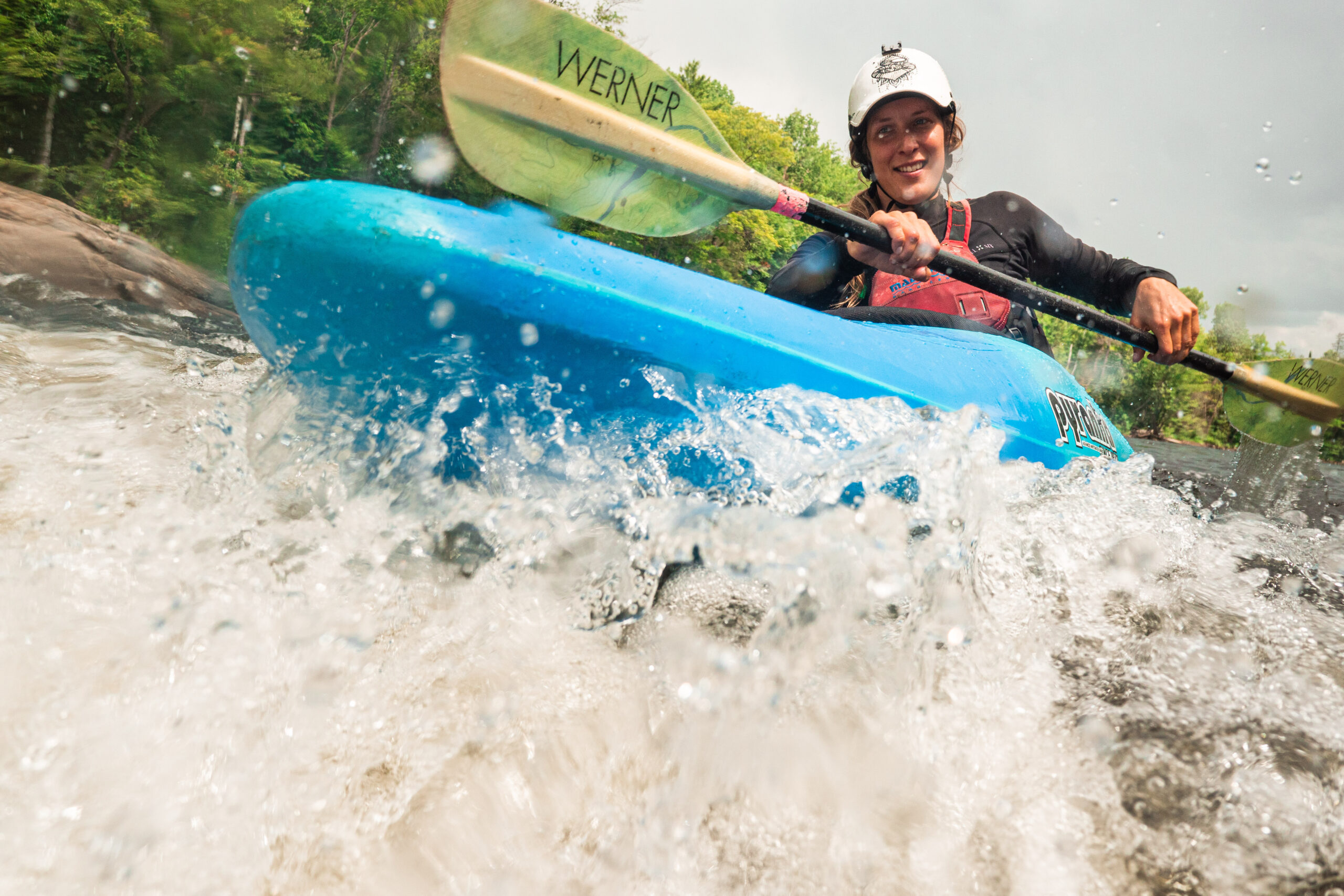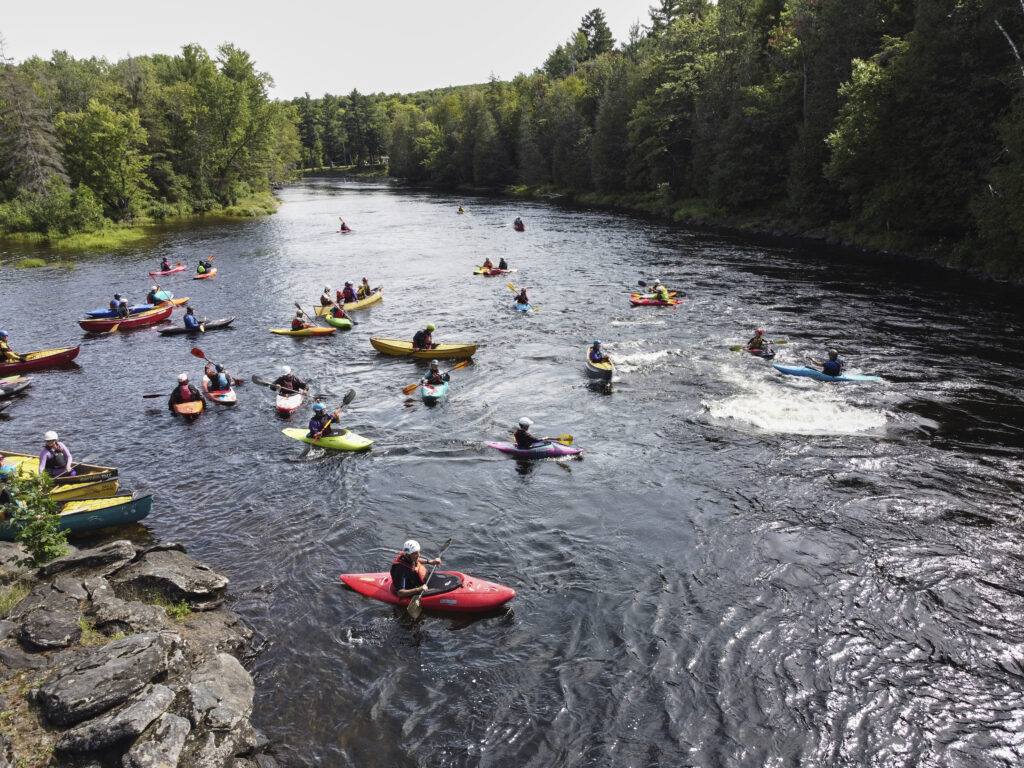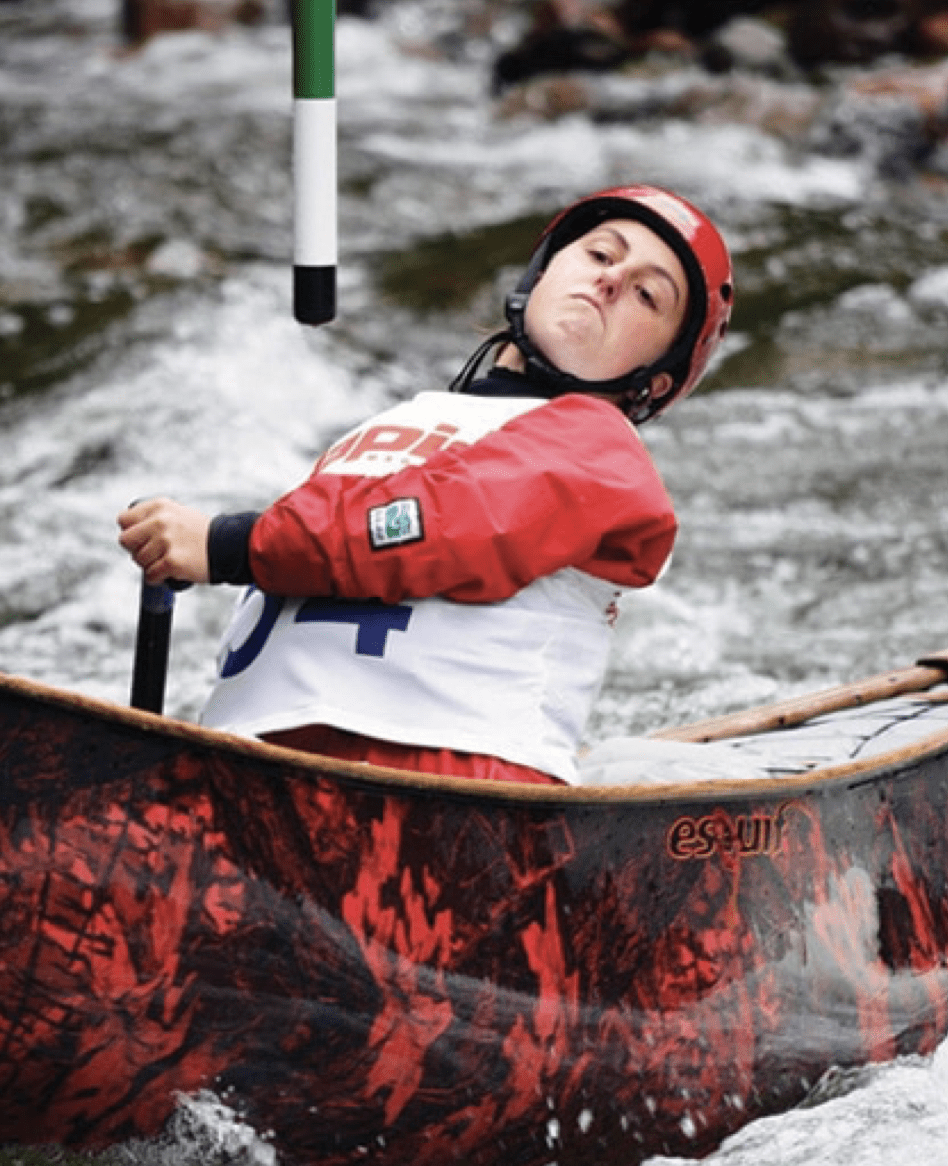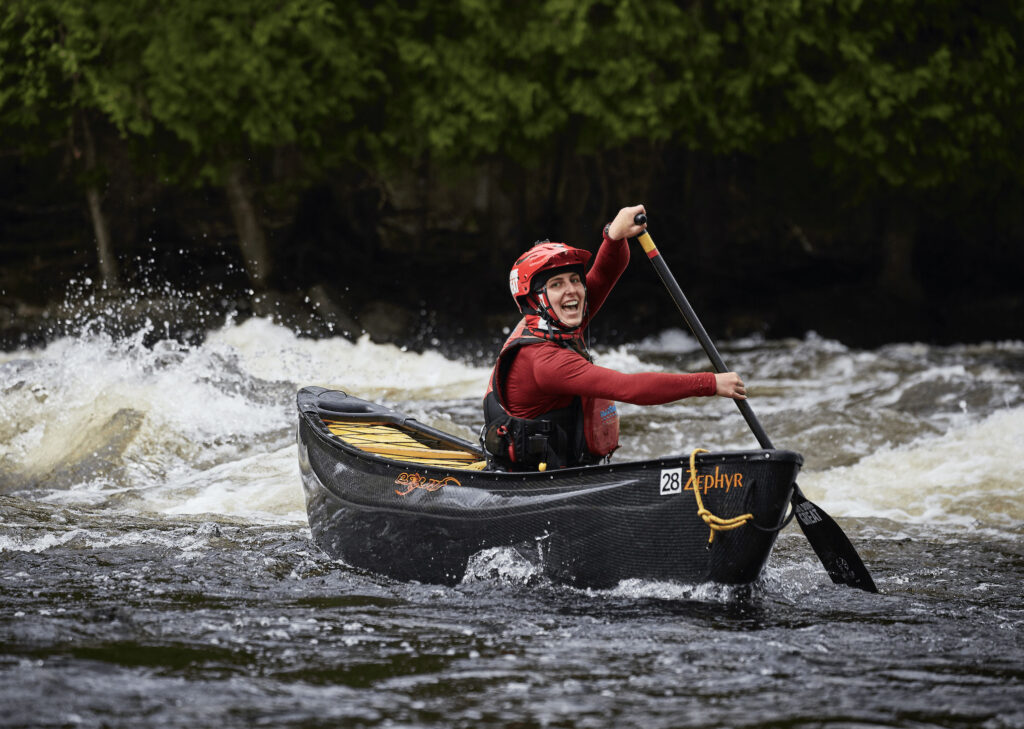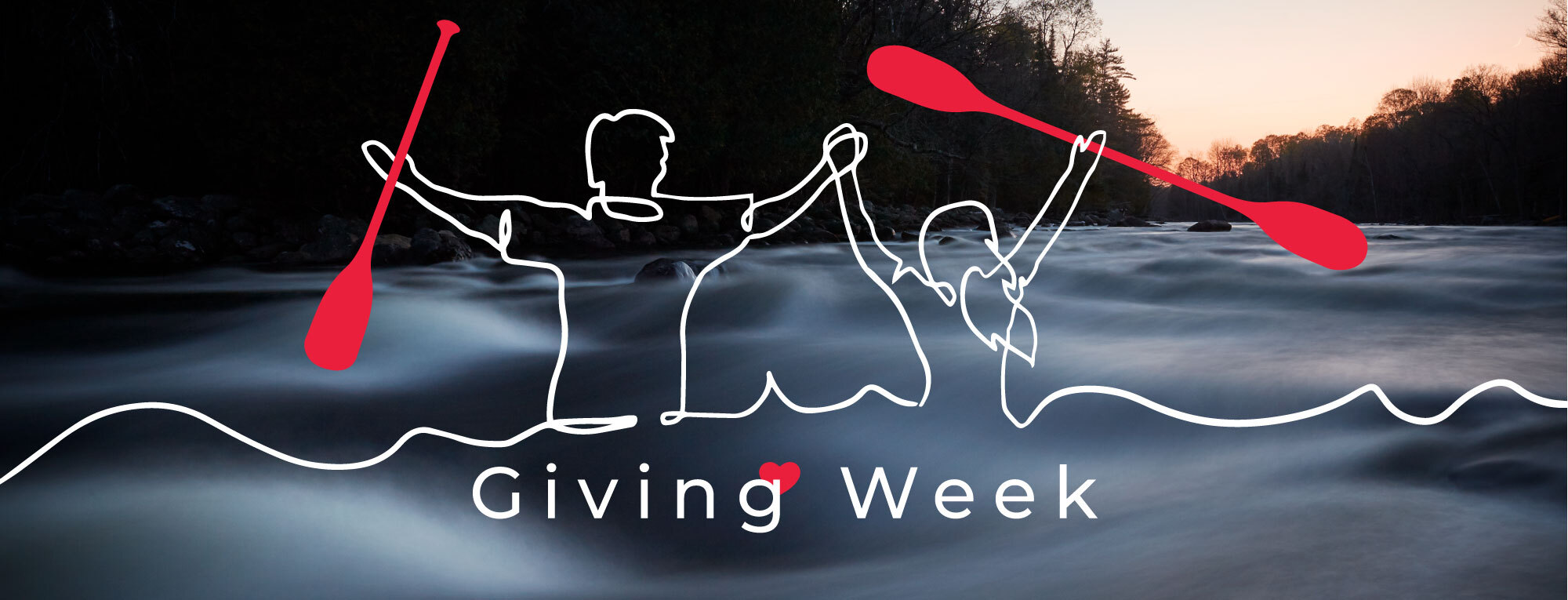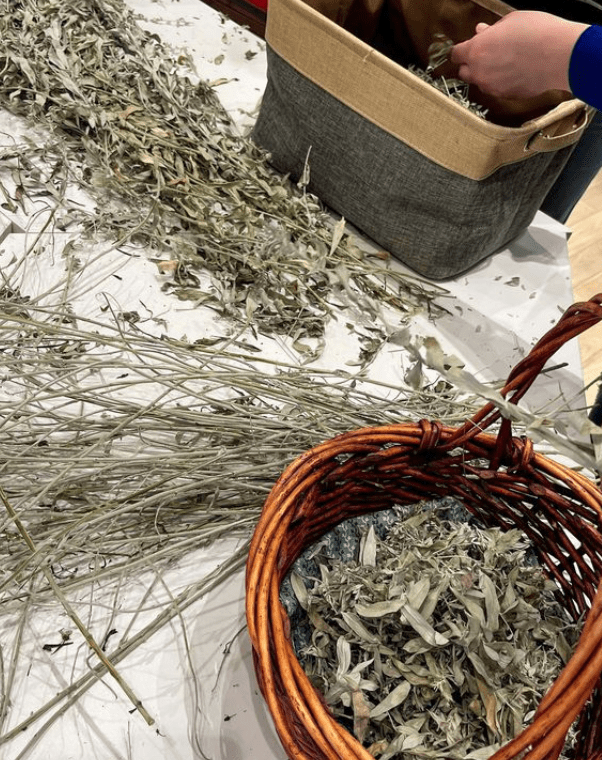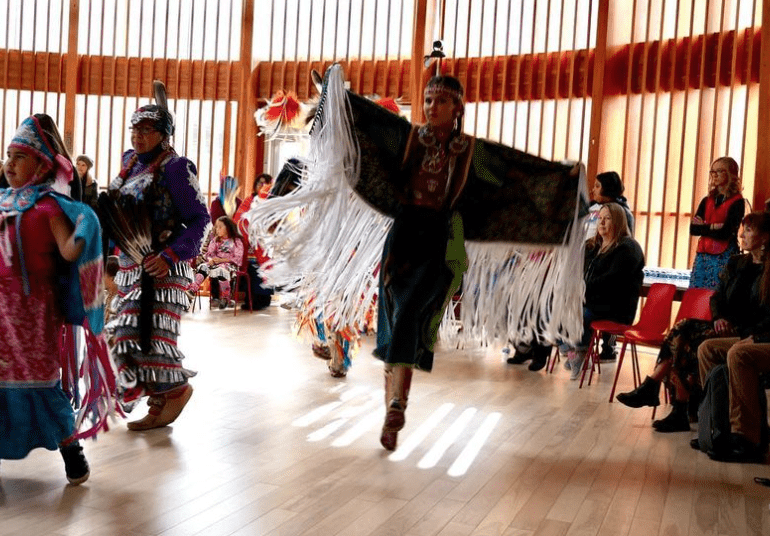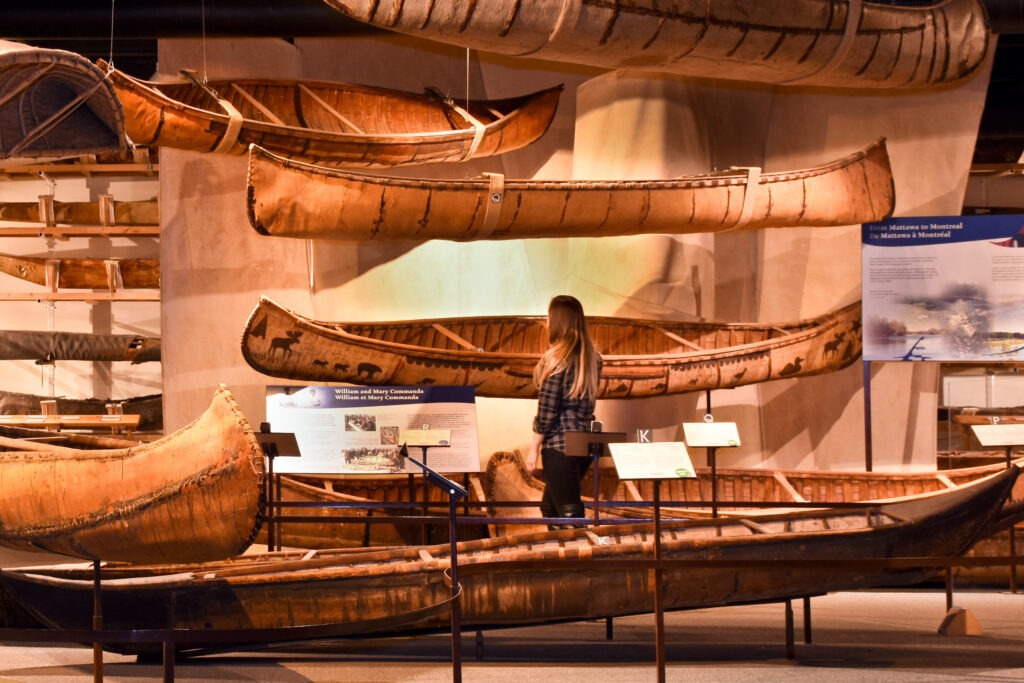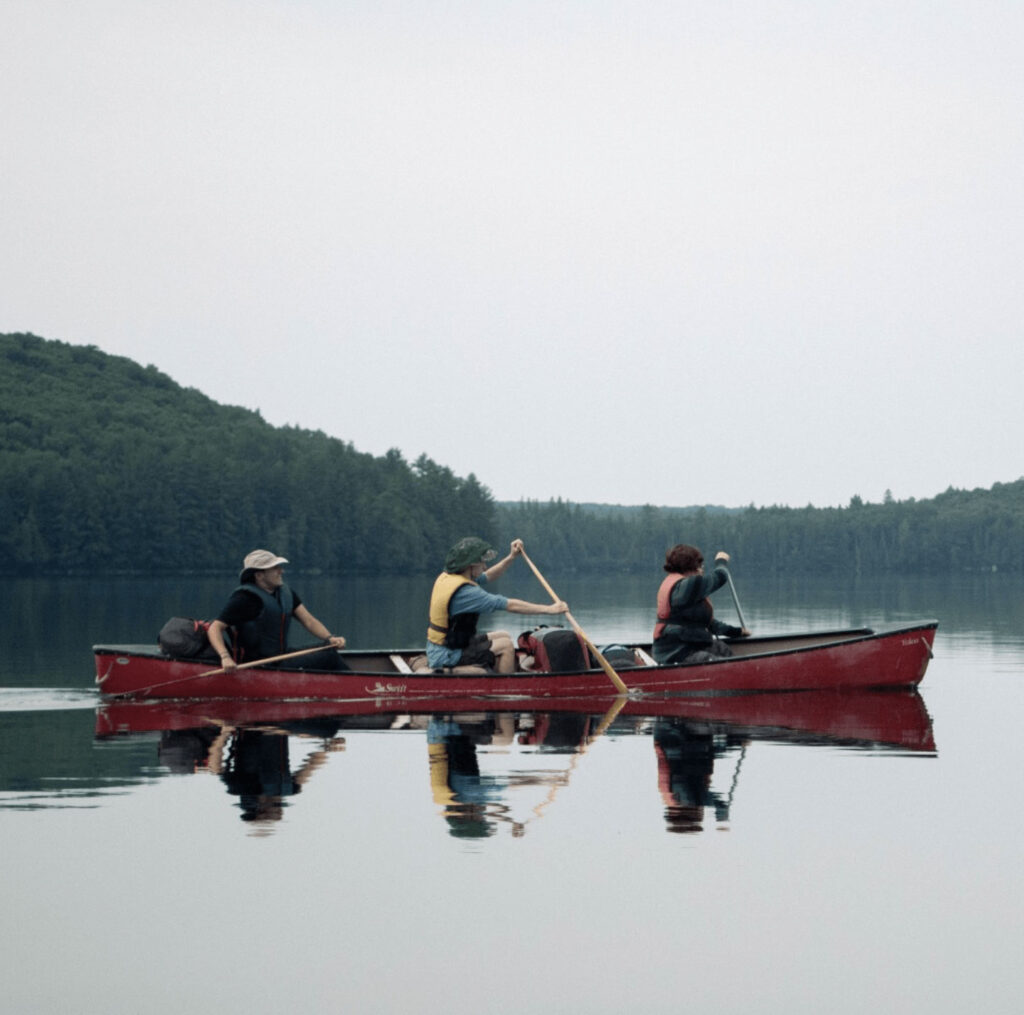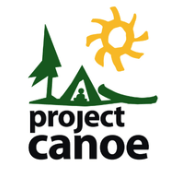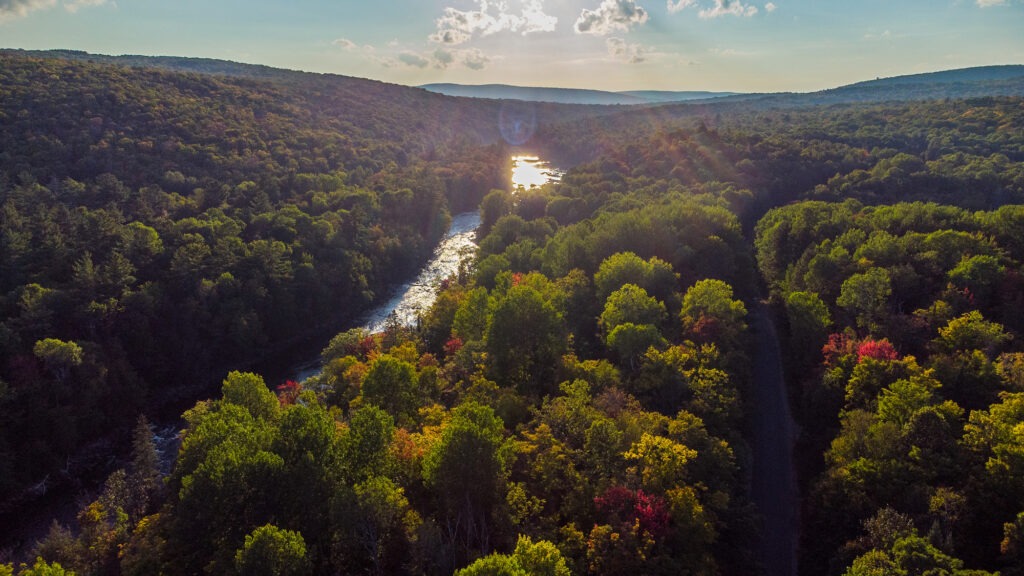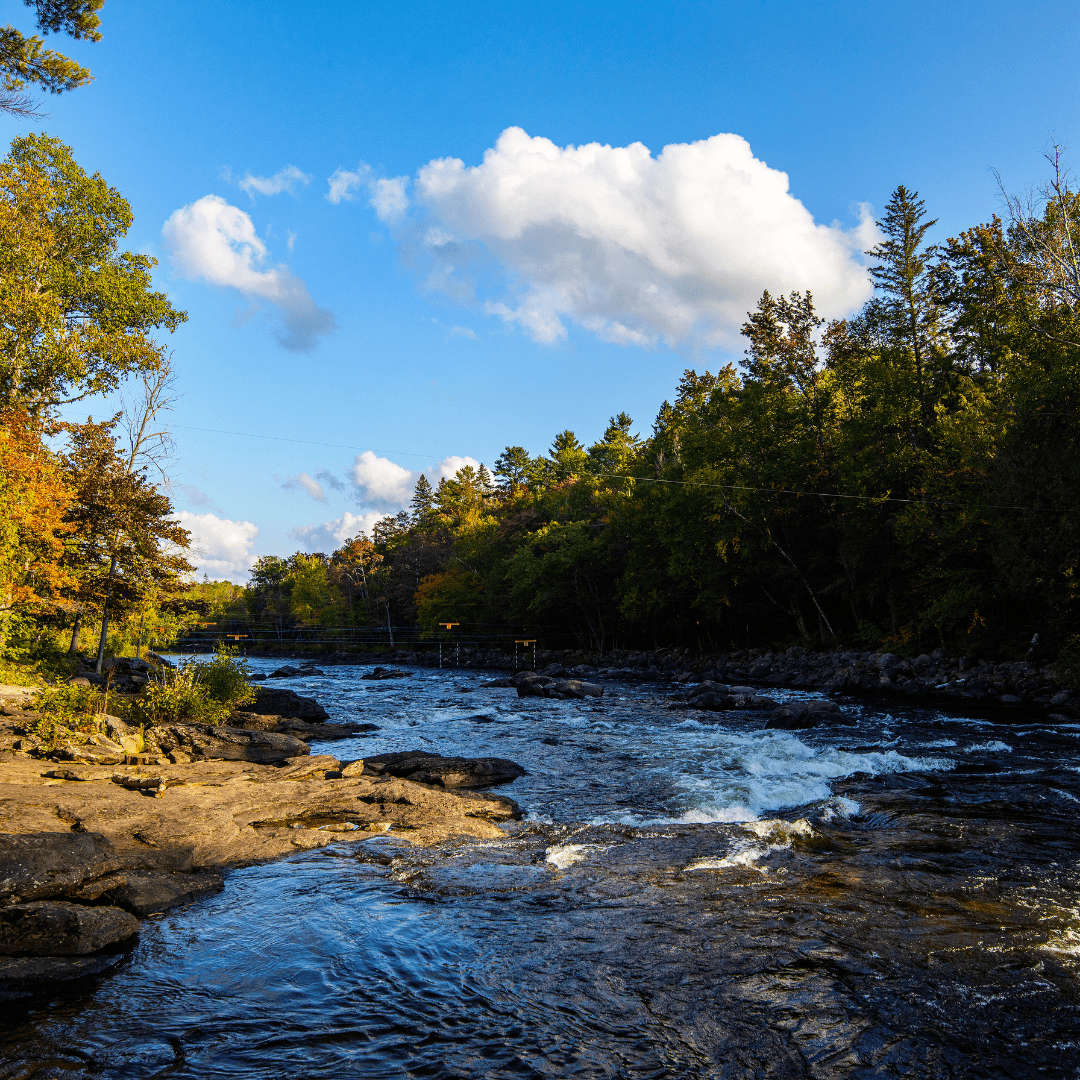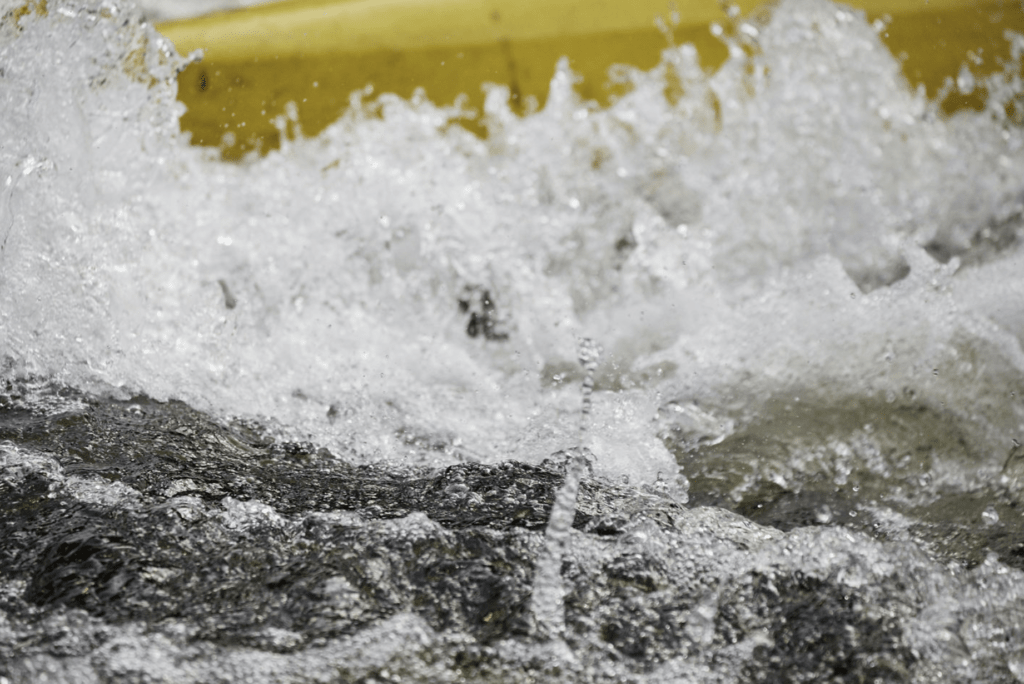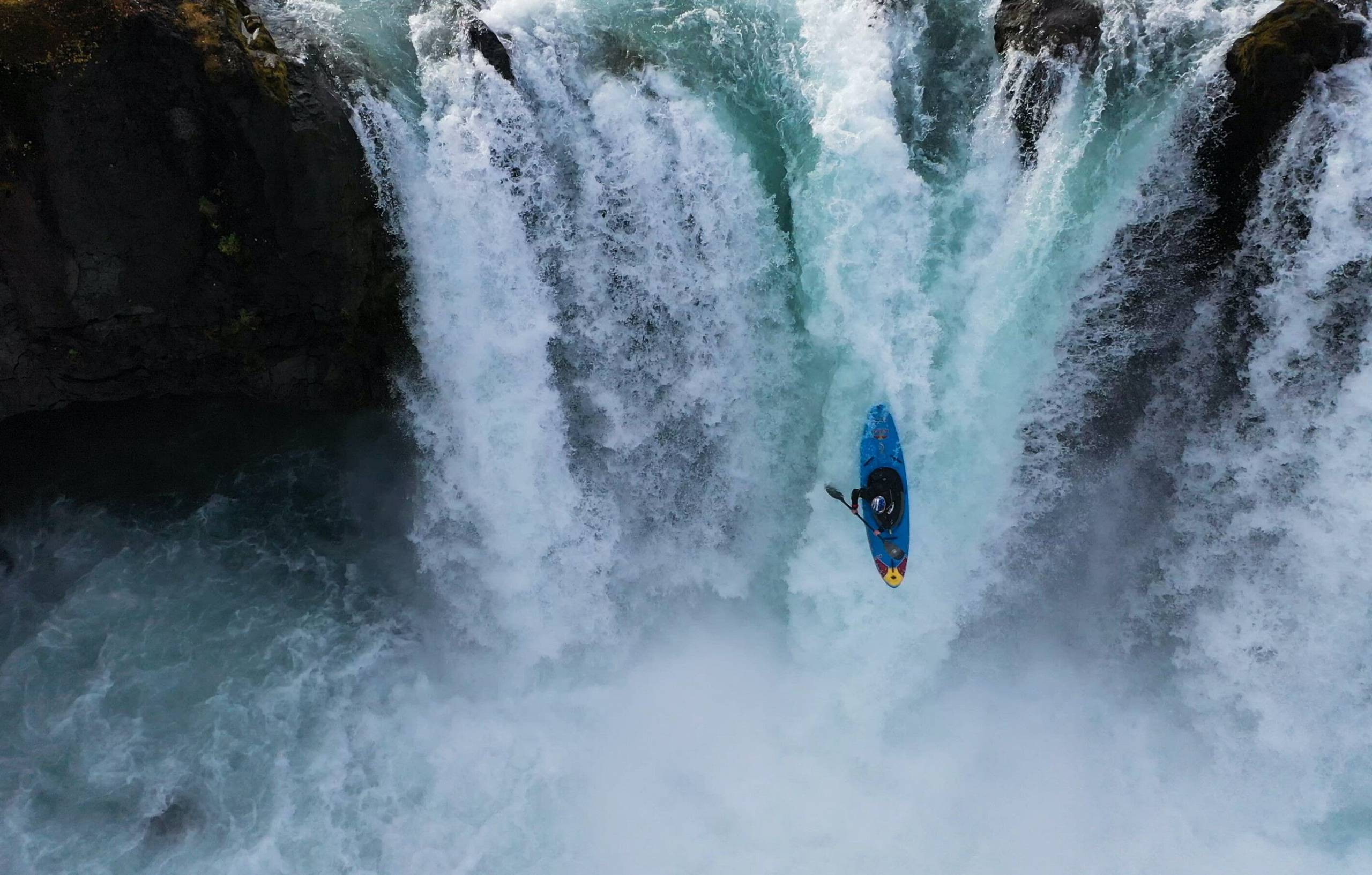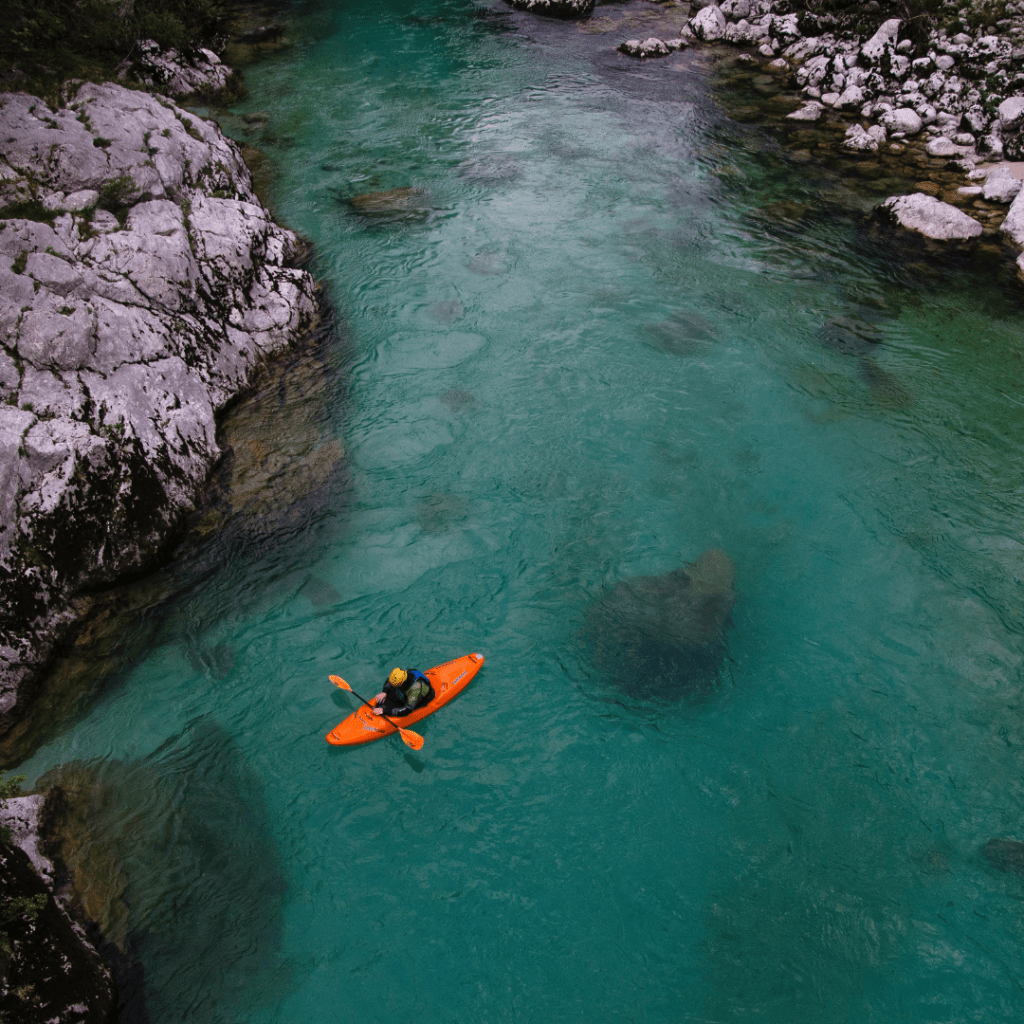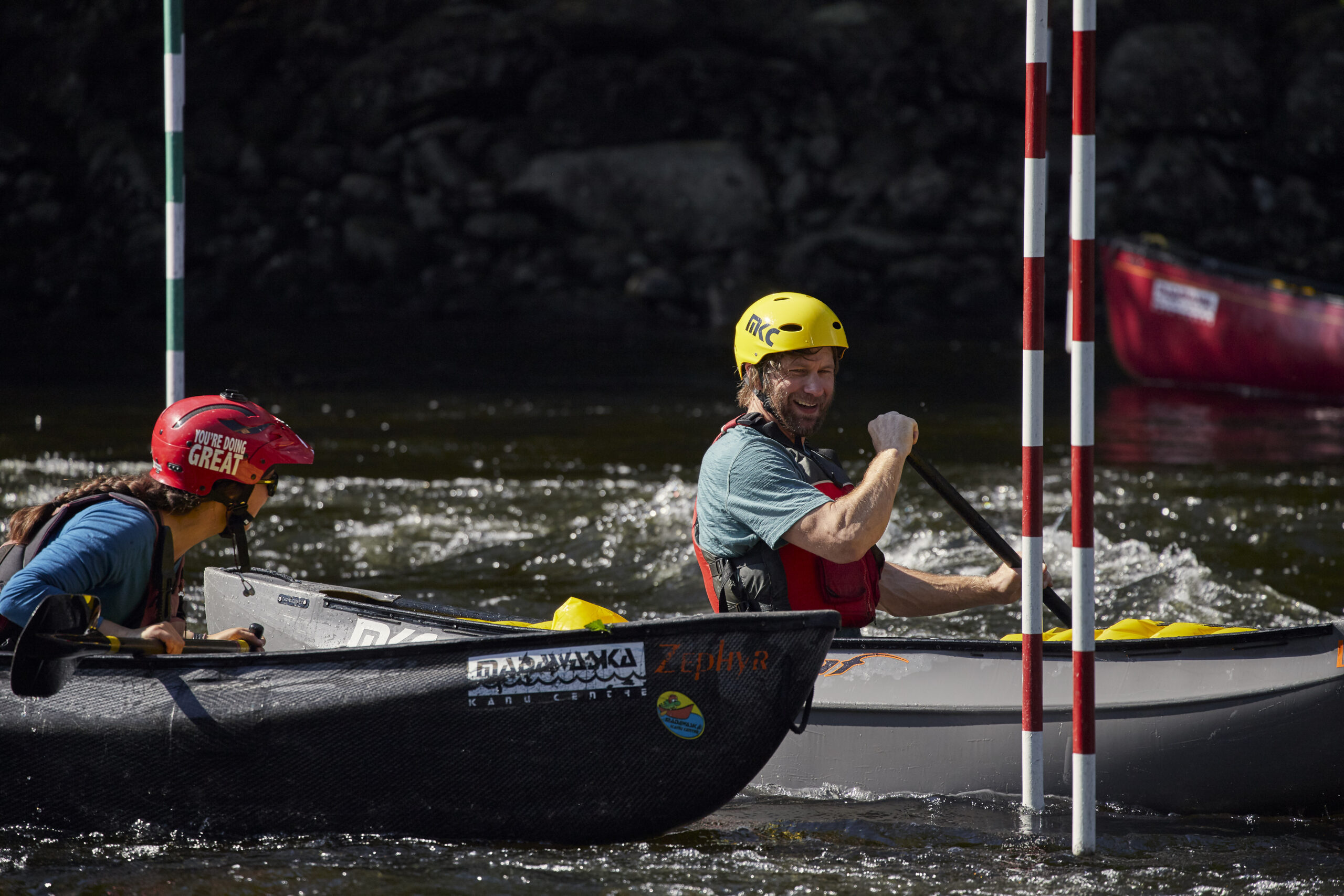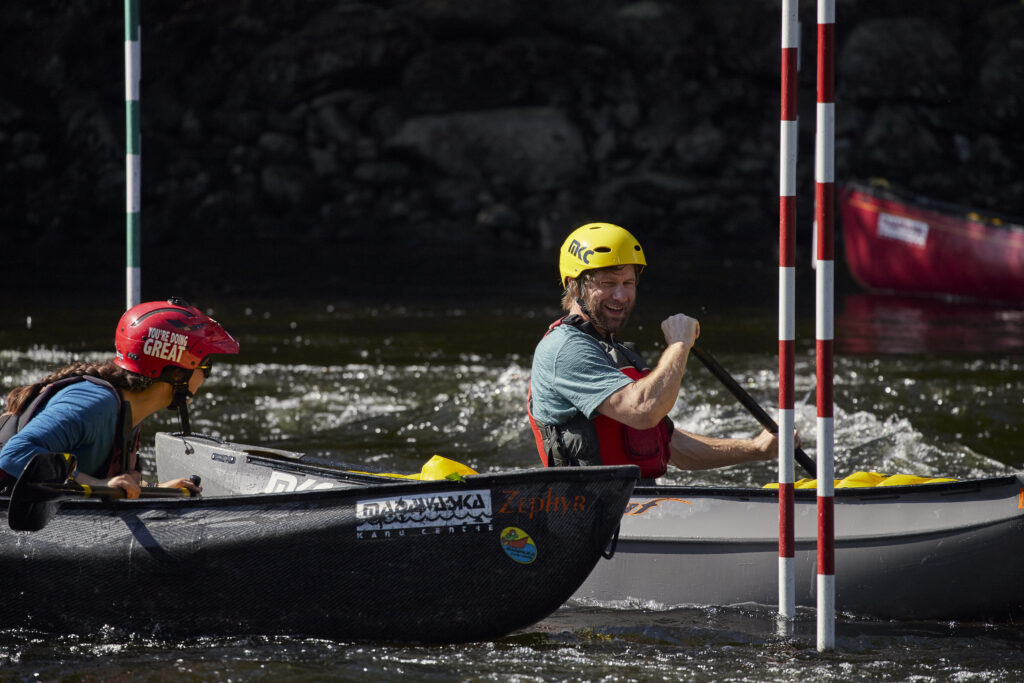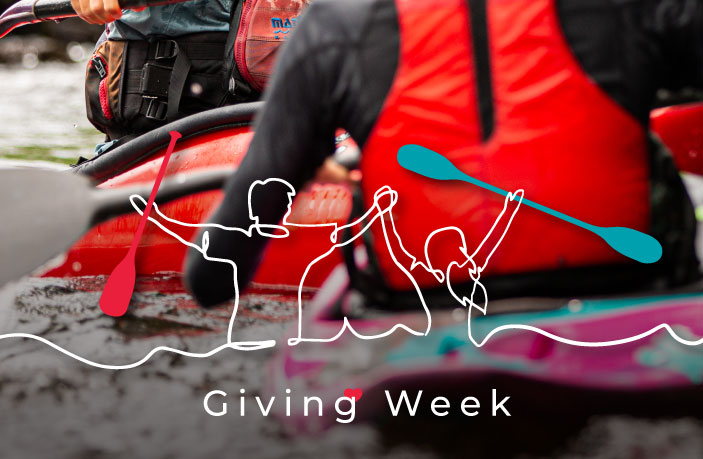We had the pleasure of chatting with Stefi Van Wijk, the director of Madawaska Kanu Centre and passionate outdoor enthusiast with a love for whitewater adventures and personal growth. She shared insights on her professional journey, overcoming family business conflicts, and much more. Settle in with a nutritious snack and your favorite drink as we dive into Stefi’s captivating journey and perspective. We’ll discuss:
Childhood & Outdoor Influences
Professional Journey
Whitewater Sports Perspective
The Madawaska River’s Appeal
Legacy & Family Business Transition
Leadership & Stewardship
Professional Growth & Connection
Personal Reflection
We started our conversation by delving into her childhood. She expressed, “I’ve always had an interesting time explaining my childhood – it was very unique. I spent my summers bouncing between a rafting company and a whitewater canoeing and kayaking school in small rural Ottawa Valley towns. Having ample outdoor playtime as a child was crucial for me. It nurtured my creativity and instilled in me a deep connection with nature. This experience has greatly influenced my decision to become an outdoor facilitator, as I aim to provide others with the same enriching experiences I had in my youth.
I have an older sister named Katrina Van Wijk, and we had (and continue to have) many outdoor adventures together – the most recent being an epic kayaking trip on the Zambezi River. When we were younger, the staff at Madawaska Kanu Centre and OWL Rafting took care of us as part of their responsibilities, almost like a ‘babysitting shift,’ so that our hardworking parents, Claudia and Dirk Kerckhoff-Van Wijk, could focus on the business while raising two wild little girls.” Claudia and Dirk have done an awesome job leading the charge at both resorts for years, and now in retirement are supporting their daughters – both of who are part of the leadership teams at the Canadian wilderness resorts.
Stefi’s first role at Madawaska Kanu Centre (MKC) was teaching kids kayaking, a special experience as it mirrored her own introduction to paddling. She began assisting at 14, eventually becoming an assistant guide with Black Feather, where she fell in love with the industry. An injury led her to transition to an office role at MKC, followed by managing courses and instructors. Her journey highlights her deep-rooted connection to the outdoor industry and her commitment to the whitewater school’s legacy.
Stefi shares a perspective on her connection with whitewater that may resonate with many. She explains that she isn’t drawn to adrenaline-fueled experiences and acknowledges that without being born into the sport, she might not have pursued whitewater canoeing and whitewater kayaking. For her, the sport offers a diverse range of experiences beyond just seeking thrills. She expresses gratitude for being able to introduce whitewater sports to others who, like her, aren’t adrenaline seekers and may actually be a bit fearful of currents and rapids.
For Stefi, the essence of the sport lies in appreciating the beauty of rivers and the sense of place they provide, rather than solely focusing on the intensity. Her motivation stems from creating a sense of community and enriching people’s relationships with paddling, rather than from seeking extreme challenges for personal validation. She elaborates, “I am really grateful for my relationship with whitewater because I don’t have an ego attached to how extreme I push myself in the sport. My ego is more intertwined with creating community and widening and deepening people’s relationship with the sport of paddling and the great outdoors.”

Madawaska Kanu Centre offers many reasons to fall in love with it, and Stefi is quick to point out what captivates her. She fondly recalls the physical challenges and the unique privilege of experiencing all four seasons. Stefi explains, “I love outdoor activities that immerse me in the beauty of the destination while adventuring with friends in a way that is stimulating, physically challenging, and full of fresh air and movement. Whitewater canoeing, kayaking, and traveling top my list of favourite activities! The seasonal changes where we live are a source of joy for me as well. I cherish the four distinct seasons, especially enjoying winter sports and exploring snow-covered forests in our stunning Ontario landscapes.”
Our discussion shifted towards what Stefi believes to be her most significant accomplishments, which primarily centered around the legacy of her grandparents. She reveals, “Continuing the legacy of my grandparents’ dream through this business is incredibly special to me. Although they have both passed, I find it rewarding to reignite and carry forward their vision. My parents played a significant role in nurturing that legacy, and I see myself as the carrier, gently guiding it down the river. My proudest achievement is sustaining MKC’s essence and its significance, aligning with the impact I aspire to make in the world. The process of transitioning a family business is intricate and requires patience, compassion, love, and dedication to ensure fairness and honor everyone’s intentions and contributions, values that I hold dear.
Conflict in family businesses is inevitable but can be managed to ensure respect and a thriving environment for all involved. After working as a course manager, Stefi and Claudia had a pivotal conversation where Stefi expressed her desire to be on equal footing rather than an employee. This led to a 4-year transition with a coach, allowing Stefi to take over MKC about 7 years ago. Stefi mentions, “I am so proud of my mom. I often say she let ‘her baby run her baby.’ I deeply appreciate the effort it took for her to hand over something she built and managed for 35 years. She ran the company with diligence, thoroughness, and passion. It must have been challenging for her to recognize that both of her babies had grown up and were ready to transition.”
Stefi is dedicated to maintaining a positive team atmosphere at the riverside resort, ensuring that guests and staff continue to enjoy its beauty. She expresses the sentiment beautifully, saying, “Keeping Madawaska Kanu Centre as an engaging, empowering, educational, beautiful space for everyone visiting is never an ‘accomplishment.’ It is always a prioritized task – it’s ongoing.” Her profound connection to nature deeply influences her leadership style, leading her to modify MKC’s slogan when she assumed leadership. Stefi explains, “I think that my relationship with nature is something I’d like to highlight. When people say that MKC is a beautiful place, it’s because we’re located on the Madawaska River. It really dictates why everyone comes here – it’s because of the river and what the river teaches us. I try to capture that in the slogan, ‘Learn from the River, with the River.’ As a whitewater educator, we are not teaching the river; we are facilitating the river to teach people, and we are facilitating people to be open to what the river is teaching them.

Initially envisioned as a training ground for athletes and Olympians by my grandparents, inspired by my granddad’s experience at the 1972 Olympics, Madawaska Kanu Centre has evolved into a recreational play resort. I was introduced to whitewater kayaking as a competitive sport, but I’m grateful for and happy with the shift in MKC’s culture. We are still an active educational experience, but as my mom has always said, we are now an ‘active vacation.’ We no longer have ‘test days’ for participants; instead, we focus on teaching as much as we can during the course, allowing participants to learn at their own pace without pressure to achieve a certain status. This shift has been significant for us.
Originally focused solely on kayak instruction, in 1981 we expanded to include canoeing. Since then, we have added Tandem Canoe Tripping and Solo Whitewater Playboating, which have been very successful. The Madawaska River provides an ideal training ground for canoe trips and solo canoes. In 2024, we have noticed an increase in interest in Solo Whitewater Canoeing, which is exciting as it’s such a complex sport. Kayaking has always had stable interest, and we are grateful for the rising interest in Tandem Canoeing.”
In the outdoor industry, trends play a significant role in shaping its future. Stefi shares her insights on the trends she hopes will continue and those she sees emerging. She emphasizes, “One is increasing diversity in the whitewater community and all the different things that are involved in that. So having more paddlers, and more people with nature-inspired values, and inclusion. That is the biggest trend that I hope for is diversity and inclusion.
Another trend she is mindful of is the impact of climate change on outdoor recreation. “The increase in climate volatility means we need to increase our resiliency and decrease our negative impact on the environment, and that is an ongoing project.” When it comes to stewardship, Stefi believes that a deep connection to the land and water is crucial. She explains, “I believe that the best stewardship comes with a connection to land and whitewater, and to increase your connection is to play and enjoy the natural space. I would say that it is one of MKC’s missions to increase environmental stewardship through river education and advocacy.”
She also discusses their efforts in waste management and transportation sustainability, noting, “I am very passionate about waste management, so the facility’s waste management system is very thorough and waste production is a huge part of our purchasing policy and advocacy. Part of what we’re trying to manage is transportation sustainability is definitely a weak point for recreational paddling. And so we are in constant discussions about how to empower carpooling and how to facilitate ridesharing.
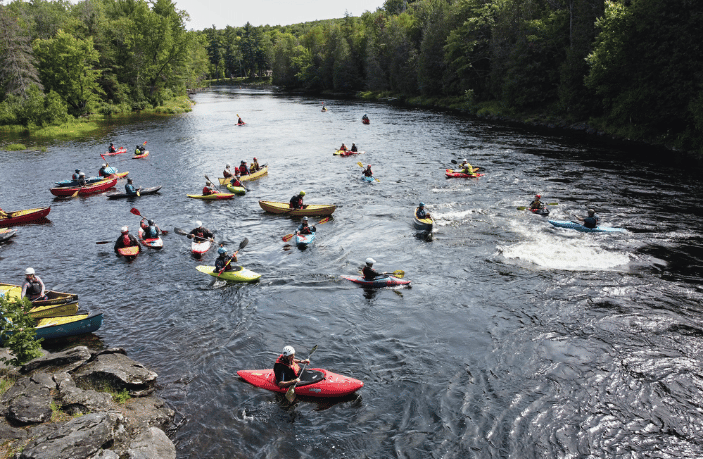
The unique charm of our home lies in its pristine wilderness setting, particularly the Madawaska River. It’s an ideal spot for paddling enthusiasts, offering a diverse range of currents suitable or both beginners and experienced paddlers. Accessible yet wild, it provides an excellent learning environment for honing whitewater paddling skills and river maneuvers. What truly sets MKC apart, though, is it vibrant community. When like-minded individuals gather here to explore river recreation, it fosters meaningful connections among passionate outdoor enthusiasts. And let’s not forget about the food – a highlight that never fails to impress our guests.
When it comes to choosing courses at MKC, every 5-day program is tailored to individual needs and skill levels. These courses offer the perfect balance of instruction and hands-on experience, allowing participants to not only learn new skills but also apply them confidently both on and off the river. As for those feeling apprehensive about whitewater kayaking or canoeing, I understand those concerns. But rest assured, our approach at MKC is personalized and safety-oriented. Whether you opt for the 2-day course or a longer 5-day program, our trained professionals ensure a supportive and enjoyable learning experience.
Reflecting on my role as an instructor, nothing brings me greater joy than witnessing that “aha” moment when someone conquers a challenge. It’s about guiding individuals through their journey of growth and celebrating their progress along the way. MKC is more than just a workplace for me – it’s my home, my community, and my playground. As we look ahead, I’m excited to continue expanding our offerings to better serve our diverse range of guests. From specialized courses like “REVV UP” to festive celebrations like Mid Mad Fest, there’s always something new to explore and enjoy on the river.
In both my personal and professional, I’m driven by a desire to continually grow and connect with others. Whether it’s setting paddling goals for the season or finding sustainable ways to engage with our guests, I’m inspired by the beauty of the outdoors and the shared experiences we create at our Canadian wilderness resort.
Thank you for joining me on this journey, and until next time – paddle on!”
